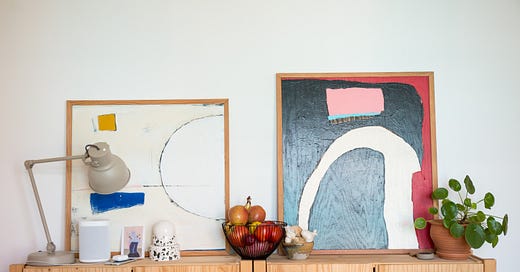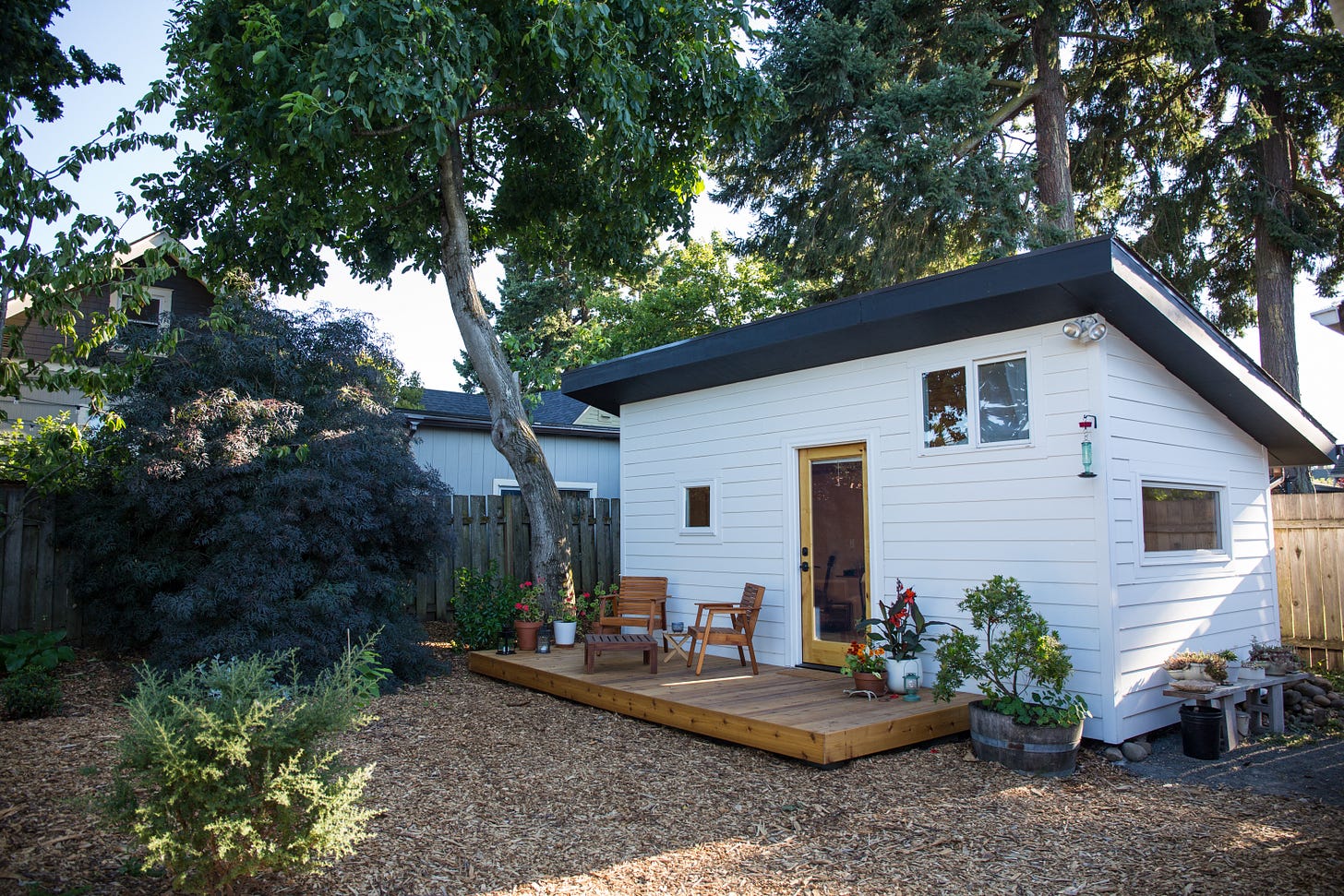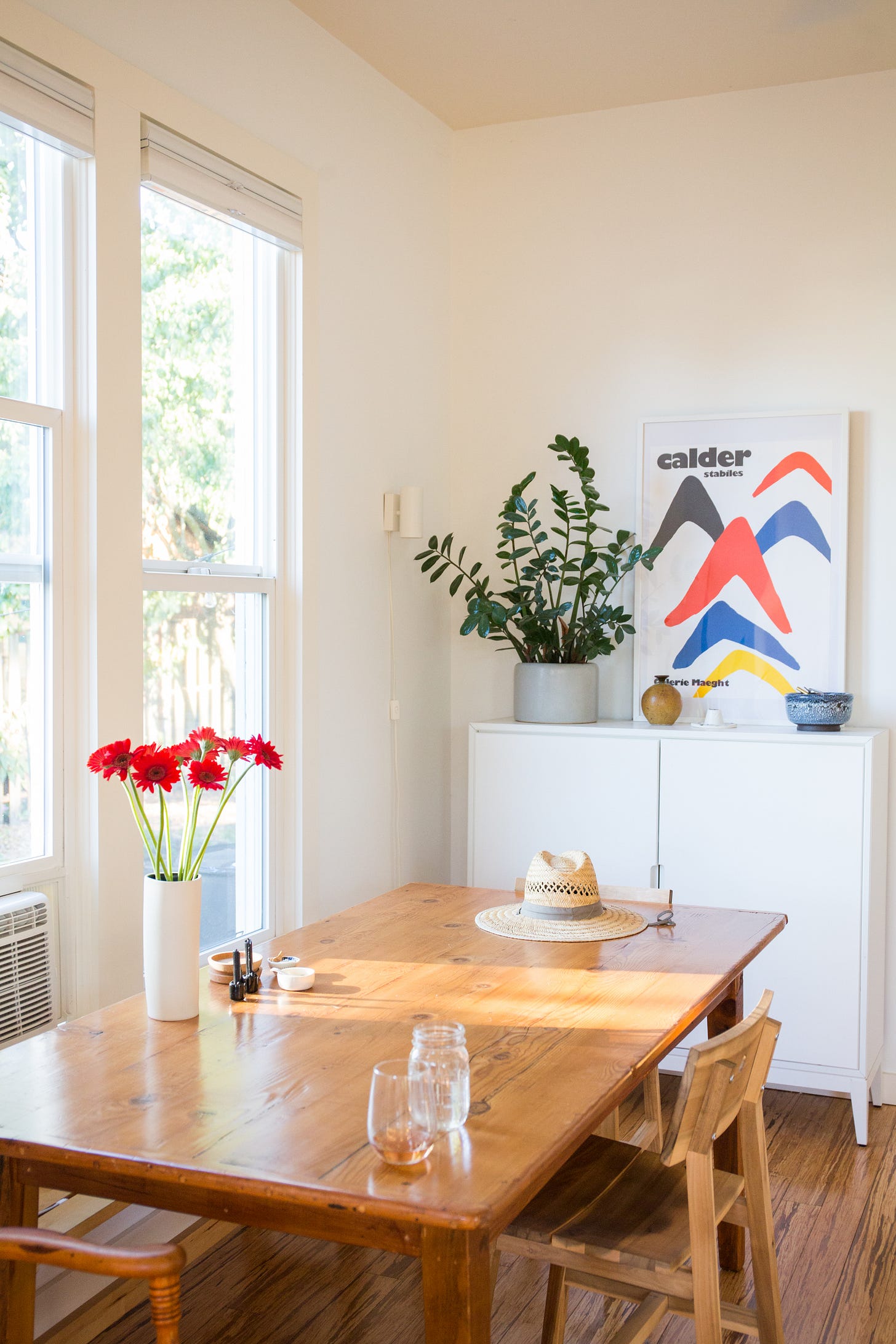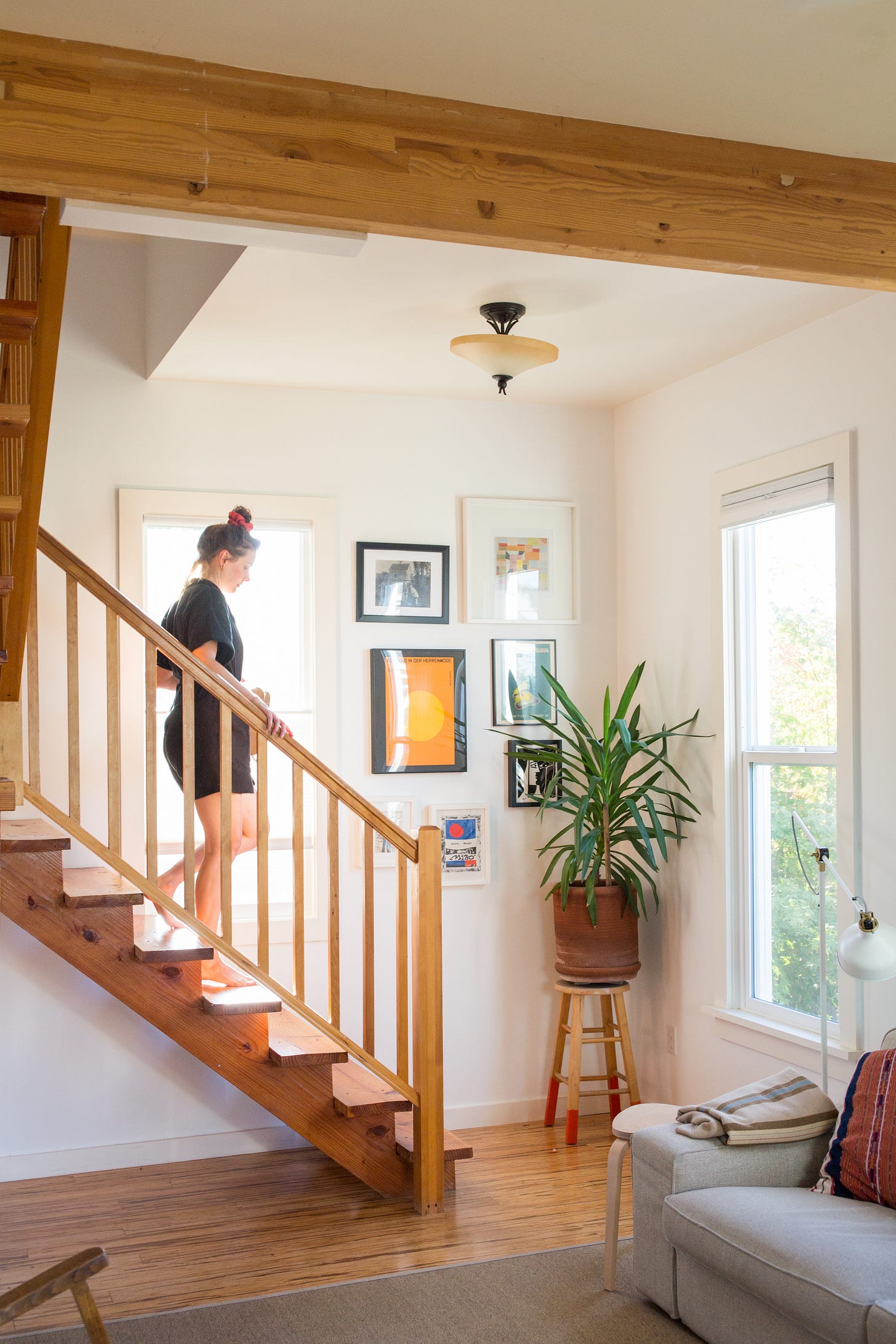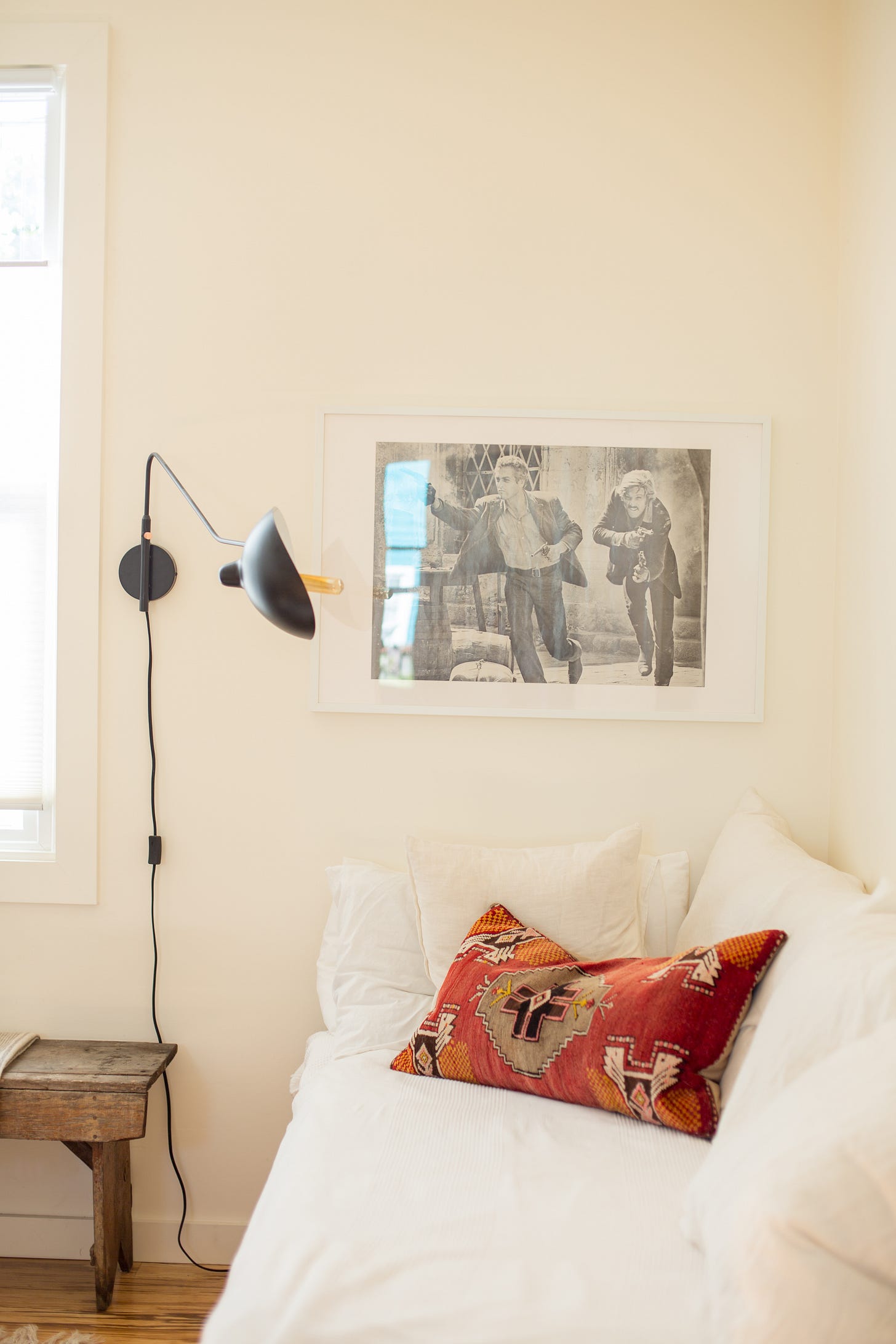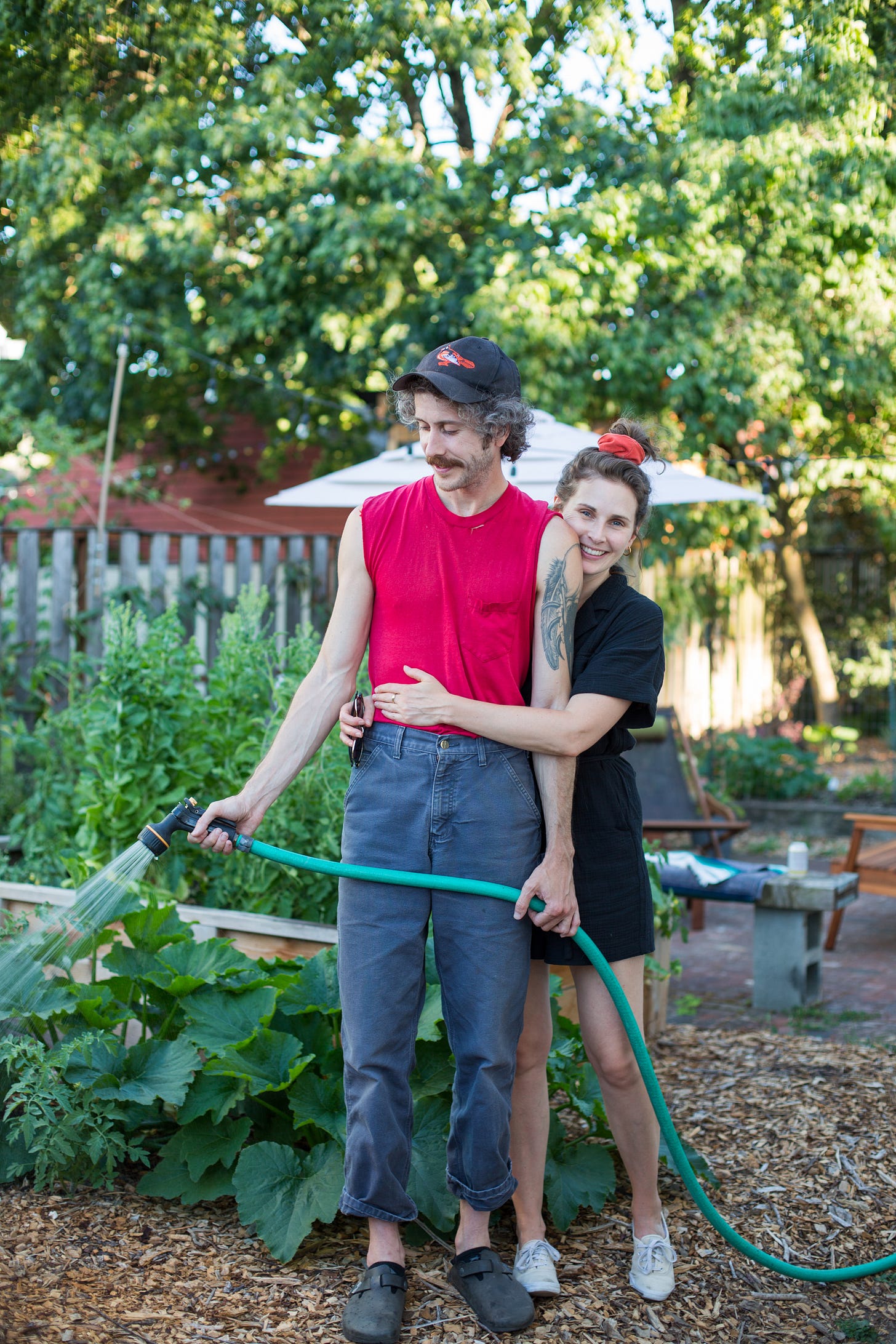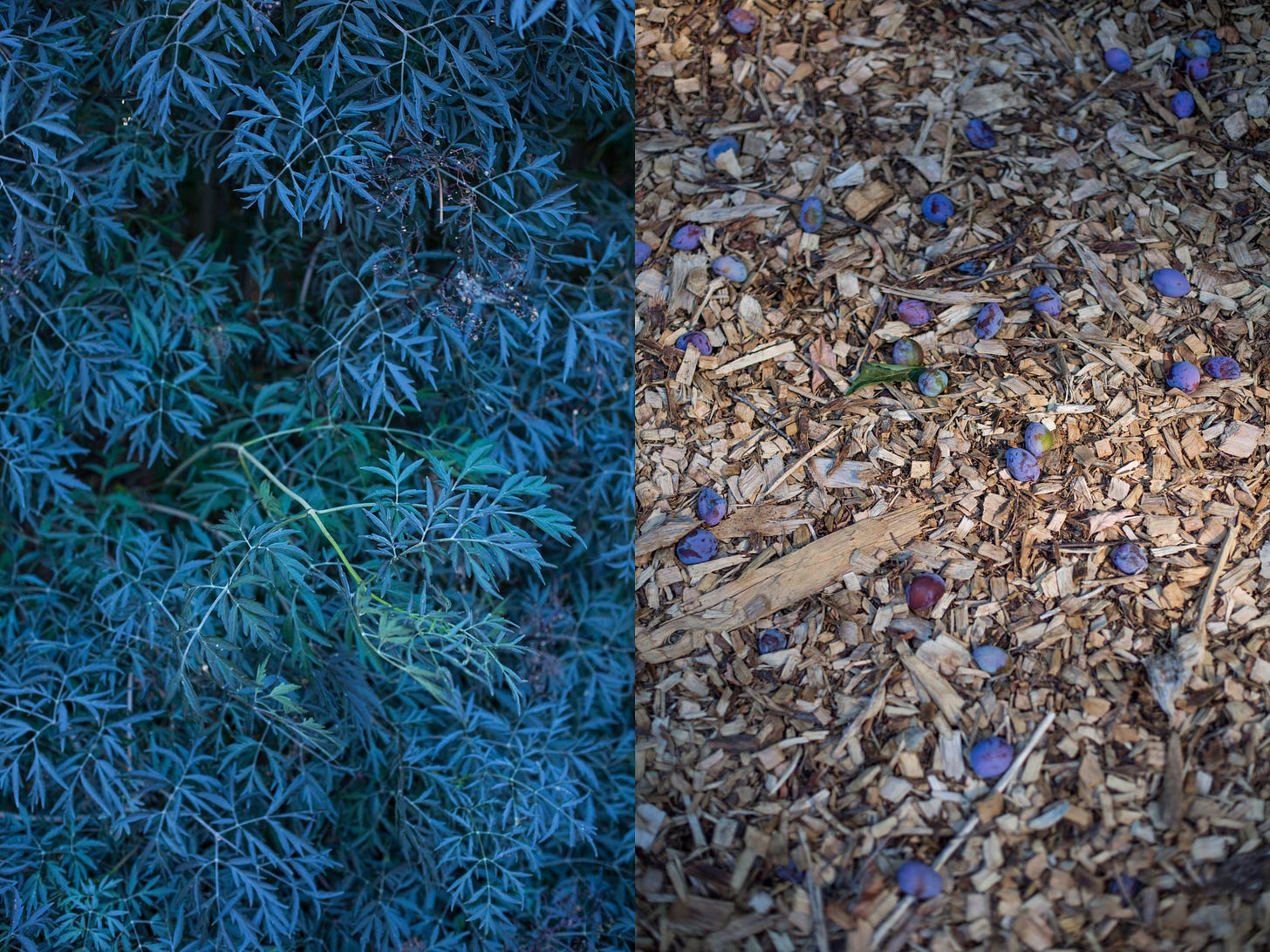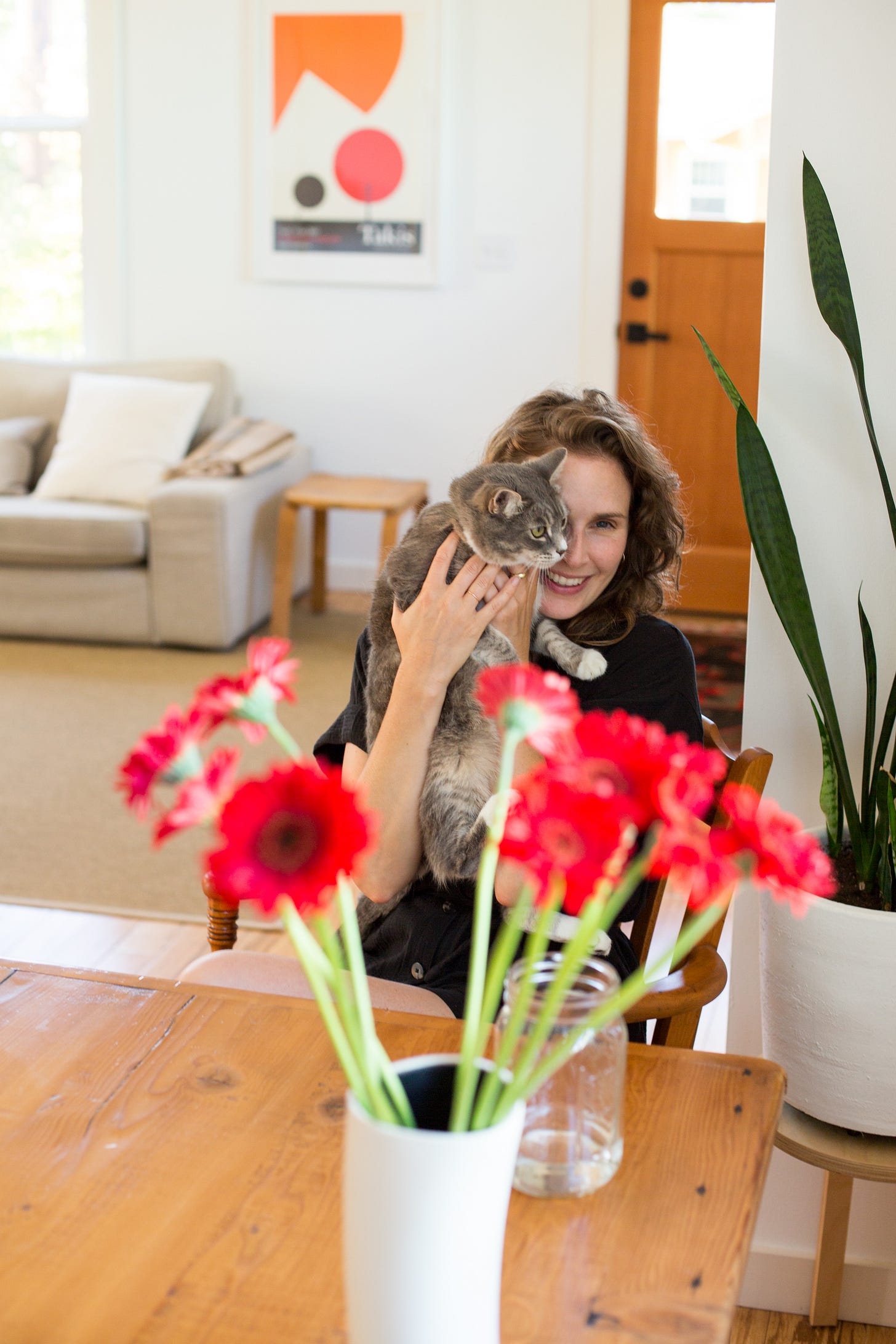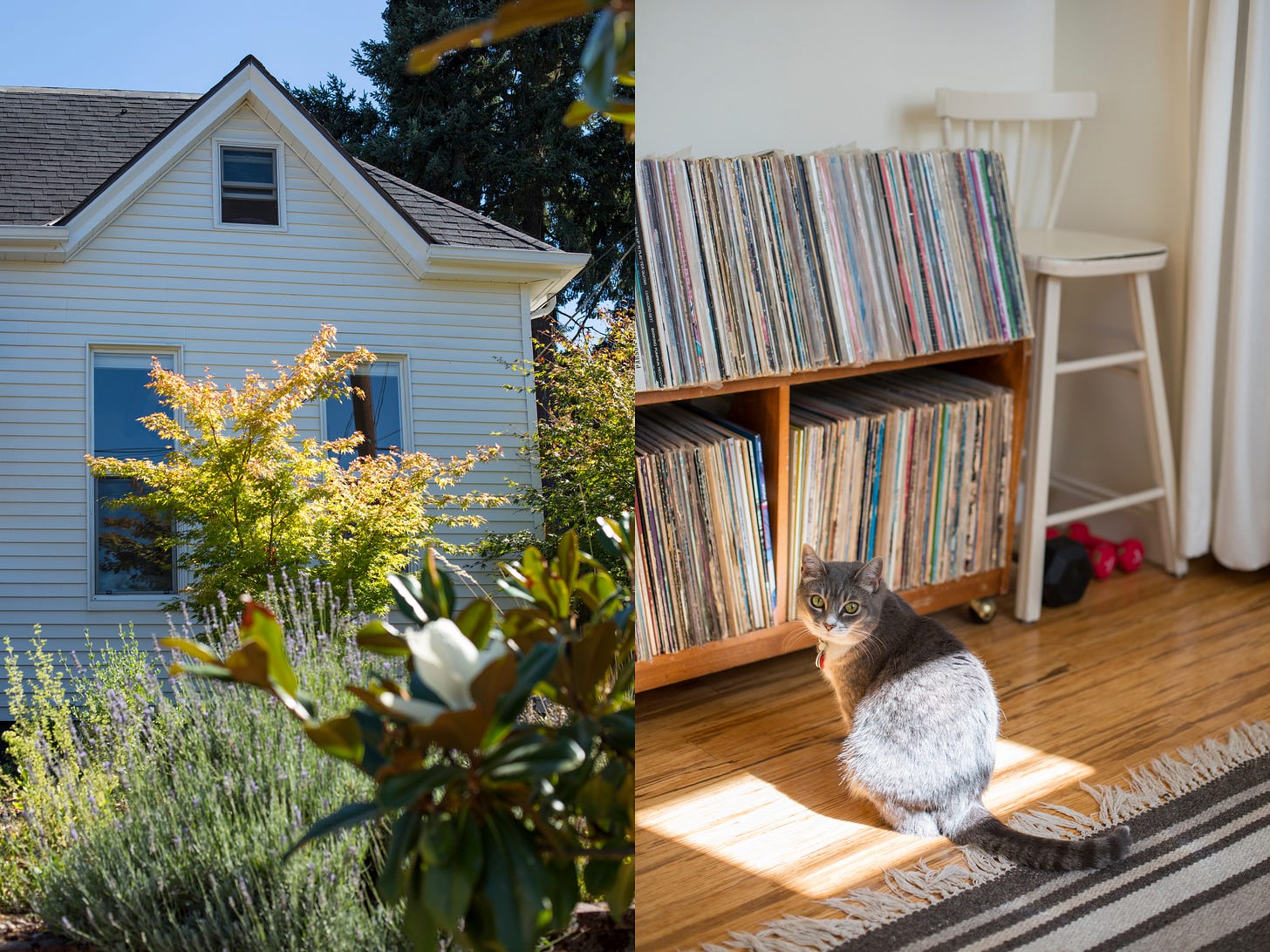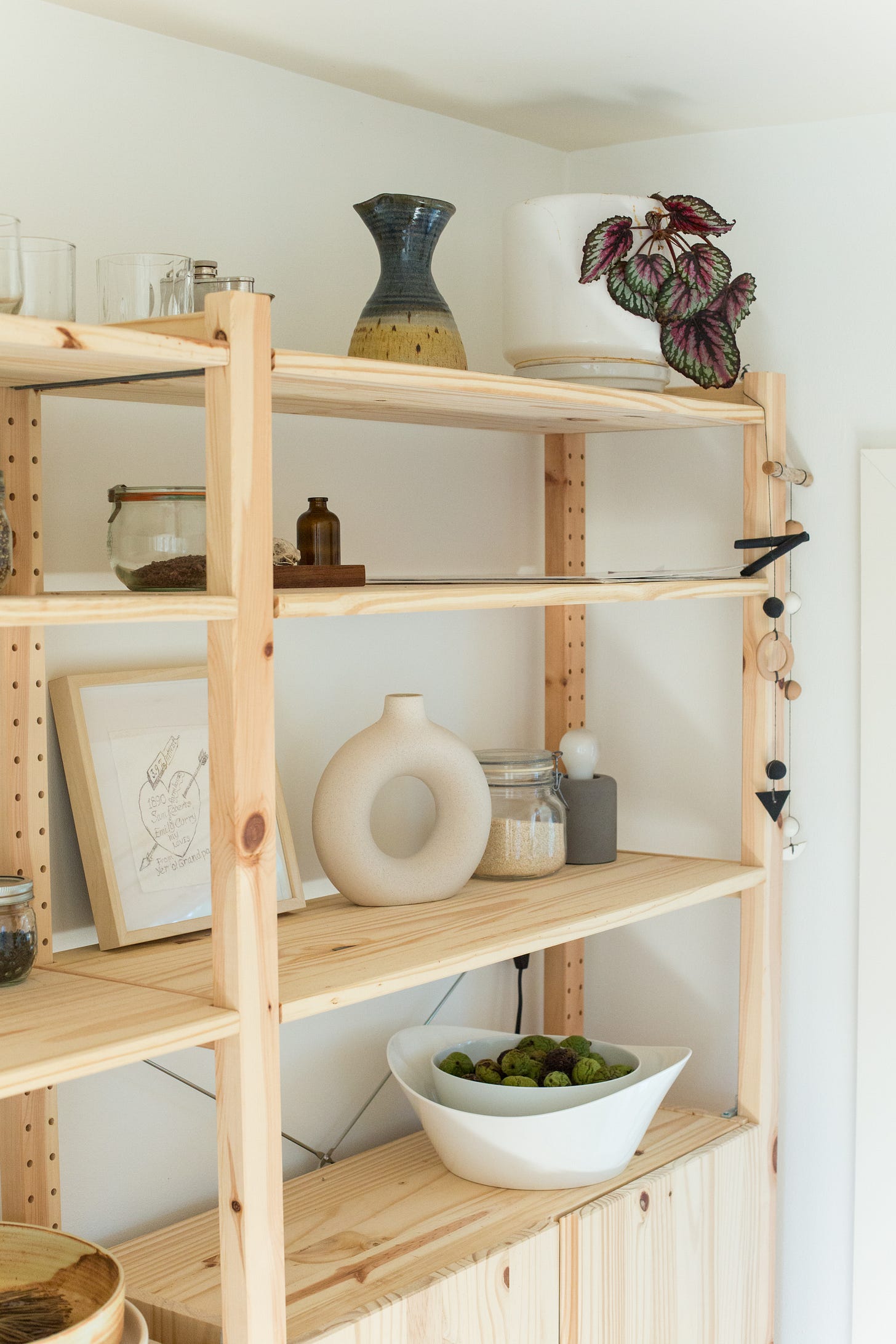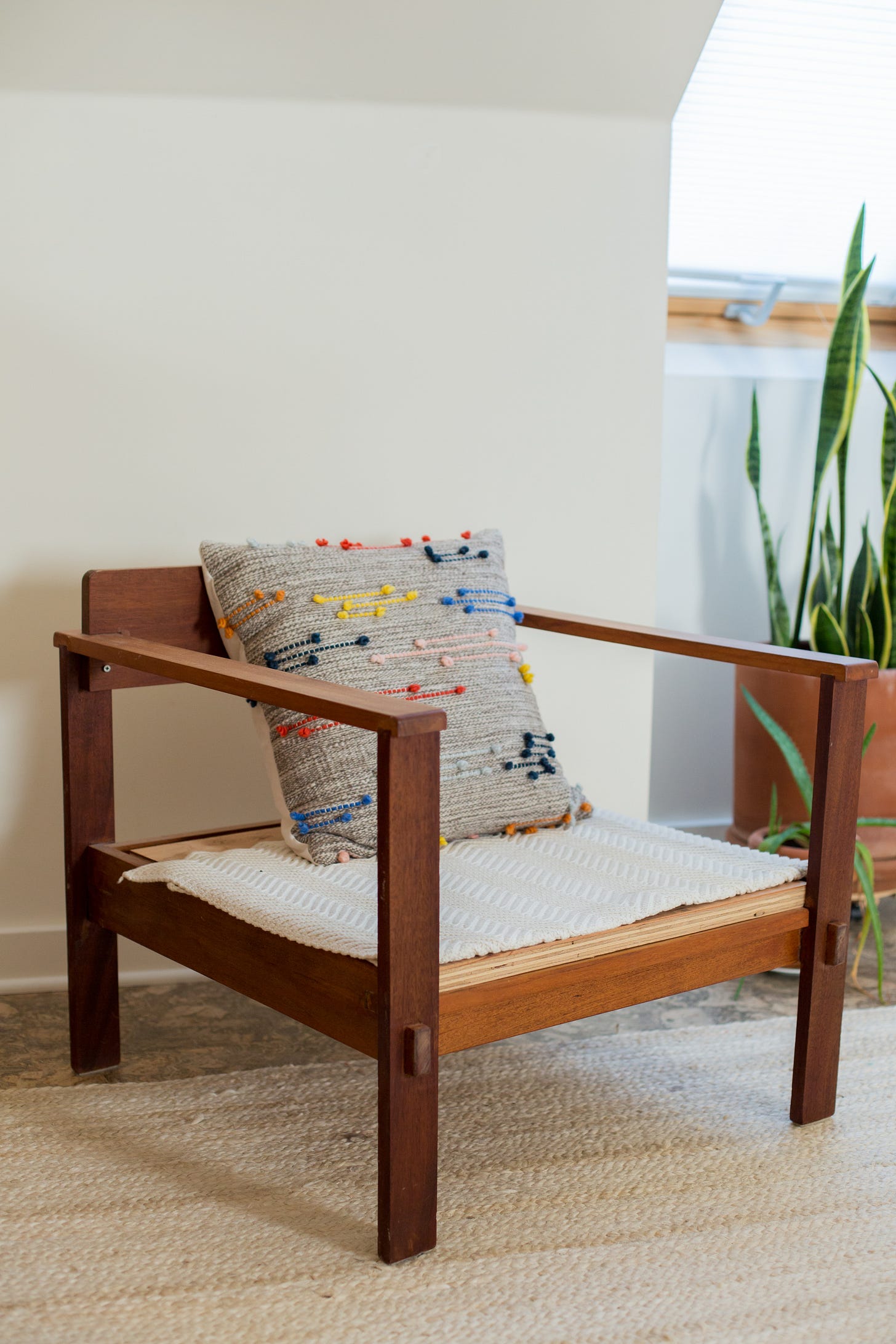At home in Portland, Oregon with Emily Curry
"Bring an old home into a modern aesthetic while not erasing its past, and while spending as little as possible."
Dear Readers,
I admit it; it has been a while. I apologize about the silence. I put REALM on hold in January when I became pregnant with my first child. As a forty-three year old now, and as someone who holds stress in my body, I had to recalibrate priorities and dedicate myself to slowing down, and nurturing the life, and the future, growing inside me. REALM went into hibernation right alongside me.
Since January, I’ve been busy creating a home within my body, nesting more deeply than ever, and through the past two trimesters, I decided that continuing REALM every month isn’t sustainable for me. I hope to publish more issues of REALM, interviews with creative people about home and their domestic rituals, philosophies, preferences and tips, down the road with more spontaneity and less of a schedule, if possible. When I do, I’ll surely ask some suddenly more pertinent (at least to me) questions about how to live with children while retain privacy, calm and an aesthetic sensibility at home. Subsequent issues of REALM will be surprise treats for subscribers, rather than regular, predictable deliveries.
For now, I’d like to offer an interview with my childhood friend Emily Curry, an eternally youthful, witty woman who lives in a spare, bright renovated farmhouse that I absolutely love, in Portland, Oregon. While Emily works with a multidisciplinary team of designers, writers and strategists to create digital products and experiences, she is not at all disconnected from the tangible world of beauty, tending to her garden and her home with equal diligence. She relishes being in the fray of the creative process with clients and colleagues when she's not driving the business side of things. Fashion, gardening and music are creative outlets for her, and her house is a stylish , spare space with minimal electronics and extras, surrounded by a landscape she and her partner Sam have cultivated from the ground up. Enjoy the interview, and the pictures we made together. It was a real treat to photograph Emily some months ago, as I last photographed her when we were teenagers, dressing up in bathrooms and back rooms.
Hello, Emily. What is your home-aesthetic in 3 words?
Tidy, bright, simple.
When was your home built, and what about it were you drawn to at first encounter?
Our house was built in 1890; fairly old for Portland. It is a farmhouse-style with very high ceilings and tall vertical windows which bring in a lot of light. An exposed staircase leads to the lofted bedroom (previously the attic) with roof-windows. The prior owners put a lot of care into renovating and weren’t planning to move, so we were very lucky to benefit from their hard work. There is a mix of professionally done and some DIY work, which is cool, and we can see how they were resourceful, using reclaimed materials in their remodel. We were also excited about the studio out back and the large yard for gardening.
What was your childhood home like and does it bear any resemblance to your current home?
I grew up in a split-level house built in 1975. My mom always dreamed of a craftsman or farmhouse, something with lots of charm. She decorated with antiques and worked to transform that damn split level as best she could. Our house is not at all similar, but I do love antiques like her.
What's the most prominent design feature of your home, and how does it affect you?
Probably the exposed staircase. It looks to be made of reclaimed wood, but it is solid and beautiful with lots of character. A carpenter we hired for a few projects scoffed at it and kept saying he should re-build it, which made me love it even more. I like that it’s the first thing you see when walking in.
How has your perspective on home changed due to the pandemic?
I feel incredibly lucky that we moved into our house about eight months before the pandemic hit. We both work remotely now, so our home has become our office space too. I’m grateful I work in our guest room and Sam can work from the studio. We can give each other space when needed, which is obviously important when you’re cooped up and can’t go anywhere.
Being able to dedicate time to gardening is definitely a privilege and also a benefit of being mostly at home. Sam is really into growing food and I tend to the perennials. It’s all we do in our spare time; watching the plants establish over the past few seasons has been really rewarding.
What do you consider the most meaningful thing about where you live that you wouldn’t be able to take with you if you relocated?
The garden! I hope, if we decide to move someday, we can sell to someone who appreciates the perennial garden and tends to the plants.
What are the very first few things you consider when you initially set up a home, move in, and make adjustments?
I immediately set up lamps to avoid having to use overhead light which is typically really awful. Indirect lighting makes spaces feel more welcoming. In our current house I painted everything white as a sort of palette to work against. On a very practical note, you gotta find the best place for the litter box ASAP if you have a feline friend. She needs a quiet, private place for her restroom!
I know we both have talked about the perplexing query of becoming a mother or not becoming a mother. Did deciding not to have children change what you and your partner Sam looked for in a home?
The open floor plan works as it’s just the two of us. Our bedroom is a loft with an open staircase, and it doesn’t matter that we have no bedroom door. I do want to host a high school exchange student one day and we’ll need more privacy in that scenario if we’re still in this house.
What are some tips you’d give to someone trying to remodel an old home?
Bring it into a modern aesthetic while not erasing its past, and while spending as little as possible. Ask around to find a good contractor who works on smaller-scale jobs. Consider what you can do yourself and what is worth paying to have someone else do. For example, we purchased and stained several new doors ourselves, but understood hanging doors is a tricky undertaking we were not equipped to handle. We hired a contractor to install doors; very worth it.
Also check out ol’ Craigslist. I found a guy who built me an amazing custom pine wood pantry, and found awesome red cedar deck furniture from a local carpenter on Craigslist. There are always craftspeople out there doing good, affordable work, typically in their garages outside of the inner city. If you’re willing to do some research and drive to a different neighborhood you might find a rad old dude in a Pink Floyd t-shirt ready to make a deal (Philip, my cedar furniture builder).
What’s your relationship to waste at home? If you have any systems, especially ones you’d recommend to others, what are they?
The previous owners had set up a rain barrel system which we use to water the garden, when possible. We removed all grass and sheet mulched using the free Chip Drop service facilitated by the local arborist community. The wood chips and cardboard (used as a weed-suppressant) break down over time, creating a rich soil which allows us to grow food and build gardens where there once was just a yard.
Sam built a worm bin and we feed them with food scraps with the goal to use the compost they create in the garden. He also just built a compost tea system. He’s into it. We compost and recycle within the city system. It’s shocking how much waste two people generate every week.
Describe your home in 5 words.
Place I like to be.
Describe your dream home in 5 words.
Same but in the Rockies.
Etymology Interlude
alacrity (noun) [ə-ˈla-krə-tē]
Derived from mid-15th Century Latin alacer, meaning "lively, eager, cheerful”.
Alacrity implies physical quickness coupled with enthusiasm. According to the Oxford English Dictionary, alacer shares the same roots as the word ‘allegro’ which refers to music that is meant to be played at a brisk, eager tempo.
Others suggest the root word alacer has a connection to ambulare, whose root means "to wander, roam.”
Alacrity is one of my favorite things about Emily; she has a quick tempo that is seemingly counterbalanced by her tidy, simple surroundings. These calm surroundings clearly bring a sense of calm and modesty to Emily’s enthusiasm, comic relief, and mischievous charm.
Until next time,
Airyka

